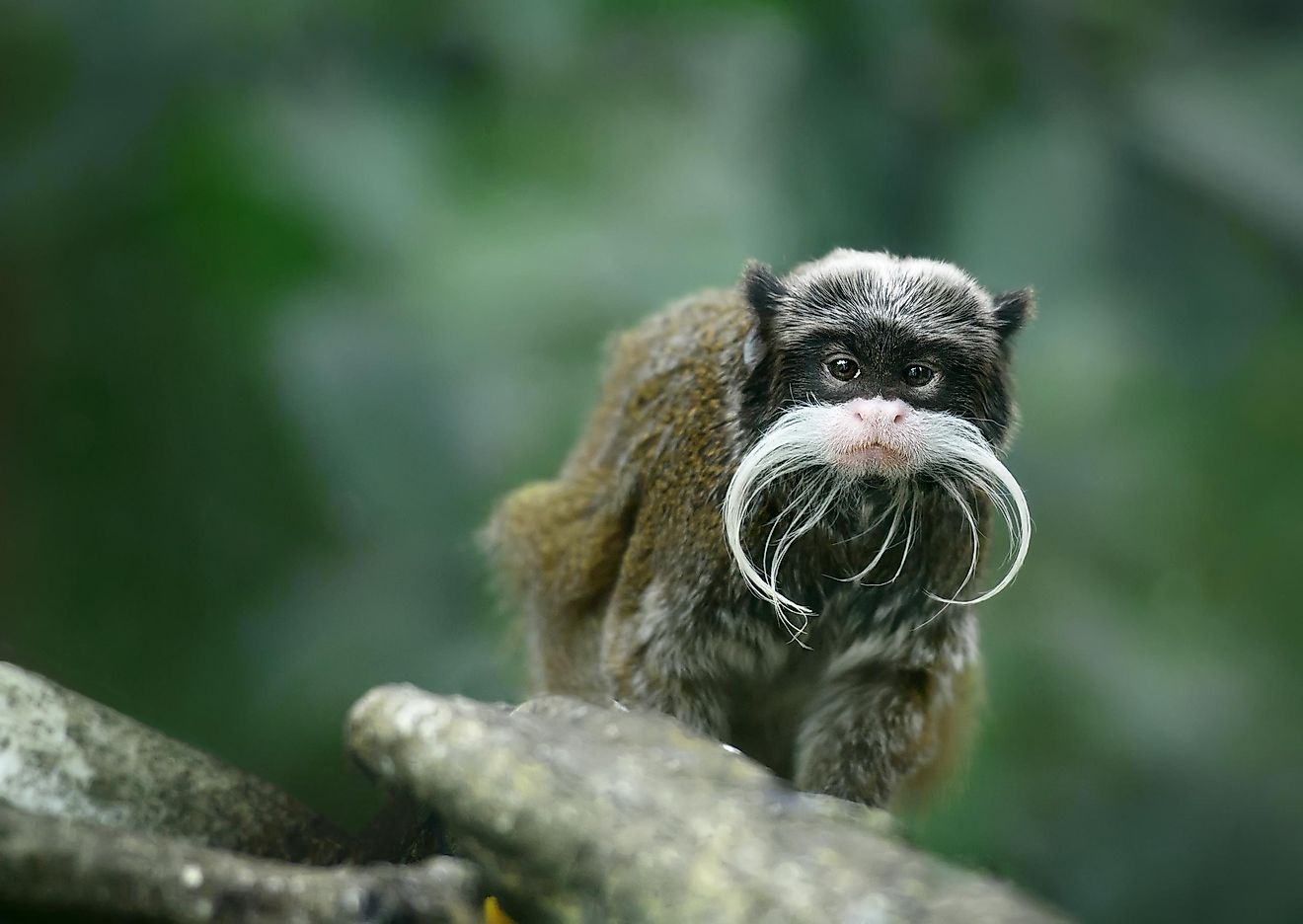Bearded Emperor Tamarin Facts: Animals Of South America

Physical Description
The bearded emperor tamarin is a subspecies of the emperor tamarin monkey. It is notable for its funny-looking, drooping white moustache, which females and youth possess as well as the males. The rest of the bearded tamarin's fur is gray, often dotted with yellow or brown spots. It is omnivorous, with its diet consisting of plants and animals alike. At full physical maturity, these monkeys will grow to up to 10 inches and weigh one pound, with a long 15-inch tail. The bearded tamarin has claws on its fingers and toes except for the big toe, which instead has a nail. It sprints on all fours.
Diet
This monkey's diet in large part consists of carbohydrate-rich plants, with supplementary small animals and insects in smaller proportions. Of the plants they feed on, fruit, nectar, and tree sap are their favorites. They eat insects such as locusts, beetles, snails, crickets, butterflies, spiders and ants. They also may plunder a bird’s nest for eggs, or catch and eat small reptiles, like lizards and tree frogs. They eat more nectar in dry seasons than during wet seasons when 95% of their diet consists of fresh fruit.
Habitat and Range
The bearded emperor tamarin is native to Central and South America's tropical rainforests, particularly in such regions like the southwest Amazon Basin in Brazil, eastern Peru, and northern Bolivia. They live in open, tree-covered habitats in trees below 80 to 95 feet in height, which are common in the Amazonian jungle. The International Union for Conservation of Nature (IUCN) reported that the emperor tamarin species is not at significant risk of going extinct, placing them in the Least Concern category. However, the IUCN notes that rapid deforestation, due in large part to logging and infrastructure construction, may threaten the species in the near future, and they are at risk of being captured for the illegal pet trade.
Behavior
The bearded emperor tamarin is most active during the day, and it is an animal constantly in motion. Their small size makes them agile creatures, and enables them to leap from branch to branch with ease. It is a social animal that lives in groups of two to fifteen monkeys. Each group is led by the eldest female, followed by mature males. They are playful and, when relaxing, they will groom one another’s fur. When there is a danger, the bearded emperor tamarin lets out shrieks and shrills to warn others in the group. It is a highly territorial monkey, and will zealously defend its colony against other tamarins or other smaller monkeys.
Reproduction

Sexually maturity for the bearded emperor tamarin is reached at 16 to 20 months, at which time they begin breeding. When a female is ready to mate, she emits pheromones that alert the males of her presence and sexual readiness and inhibit ovulation in other females in the group. Within a given group, it is the two oldest males and the oldest female who are the ones to actually reproduce. Their gestation periods last between 140 and 145 days. In one birth, a female bearded tamarin will typically give birth to two to three young ones. The role of caring for them is taken on by every bearded tamarin in the group. This "it takes a village" approach encompasses all aspects of rearing the young, ranging from sharing food to playing and grooming.











